Leaving your puppy at home while you head to work can be a source of anxiety for many pet parents. The thought of your furry friend feeling lonely or bored can weigh heavily on your mind. Fortunately, there’s a wonderful world of toys designed to combat puppy boredom and keep their tails wagging with excitement.
These boredom-busting essentials are more than just playthings; they are crucial tools for providing much-needed mental stimulation and physical activity. Prepare to see your puppy’s spirits soar as we explore a curated selection of interactive puzzle toys, engaging treat dispensers, and stimulating chew toys that will transform their time alone into a delightful adventure. Investing in the right Puppy Toys To Keep Them Occupied ensures a happier, more content pup and a more peaceful mind for you.
The Power of Interactive Puzzle Toys for Puppies
When you’re away, mentally engaging your puppy is just as important as physical exercise. Interactive puzzle toys are brilliant for this, often designed to hide treats, presenting your puppy with a fun challenge. This mental workout keeps them focused and significantly reduces the chances of them feeling lonely or missing you too much. These types of toys are fundamental in finding the best puppy toys to keep them occupied.
All For Paws Interactives Dog Treat Turbine
The All For Paws Interactives Dog Treat Turbine is a captivating spinning food dispenser that turns your puppy’s kibble into an engaging, all-day playtime experience. It keeps them mentally stimulated and entertained as they problem-solve their way to retrieve the treats. This toy is a fantastic example of how to make mealtime an activity.
Key Features:
- Difficulty level can be adjusted to suit your puppy’s developmental stage.
- Keeps your puppy busy as they work out how to dispense treats or kibble, fostering patience.
- Encourages slower eating of kibble, which can aid digestion.
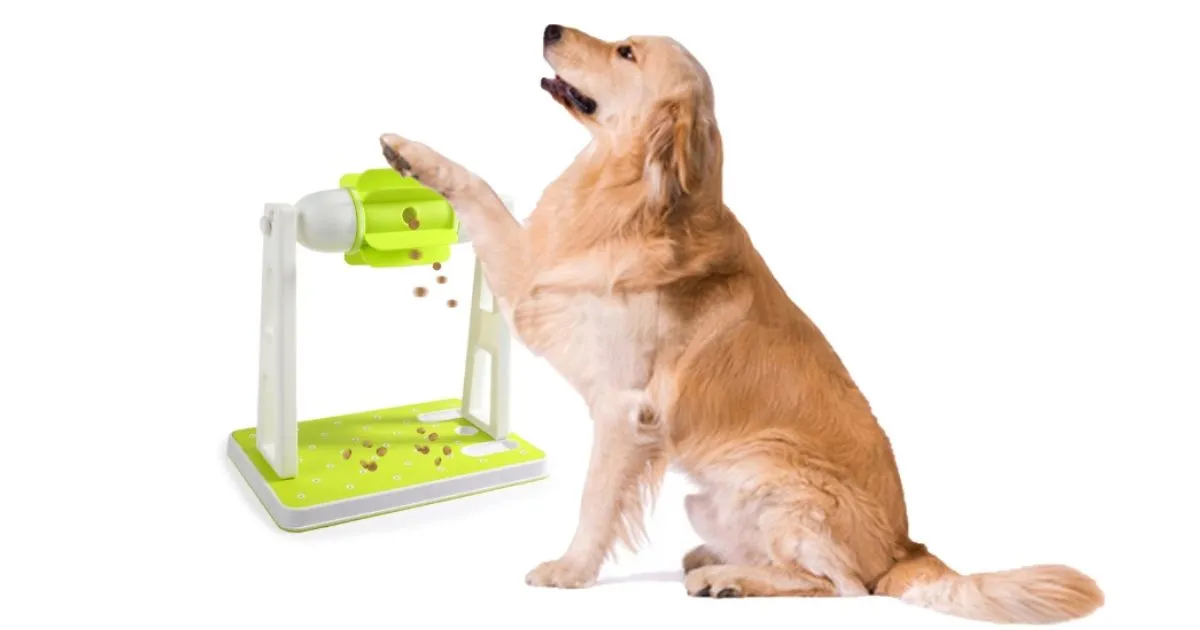 All For Paws Interactives Dog Treat Turbine
All For Paws Interactives Dog Treat Turbine
Bone Appetit Flip’N’Slide by All For Paws
The Bone Appetit Flip’N’Slide is a challenging puzzle toy that offers moderate levels of difficulty, making it suitable for puppies as they learn and grow. With its clever treat-hiding compartments and interactive design, this puzzle stimulates your puppy’s problem-solving abilities while keeping them happily occupied.
Key Features:
- Flip and slide compartments satisfy a puppy’s natural foraging instincts.
- A non-slip base ensures stability, so the toy stays put even when your puppy is enthusiastically playing.
- Removable treat dispensers allow treats to be hidden in multiple locations, prolonging engagement.
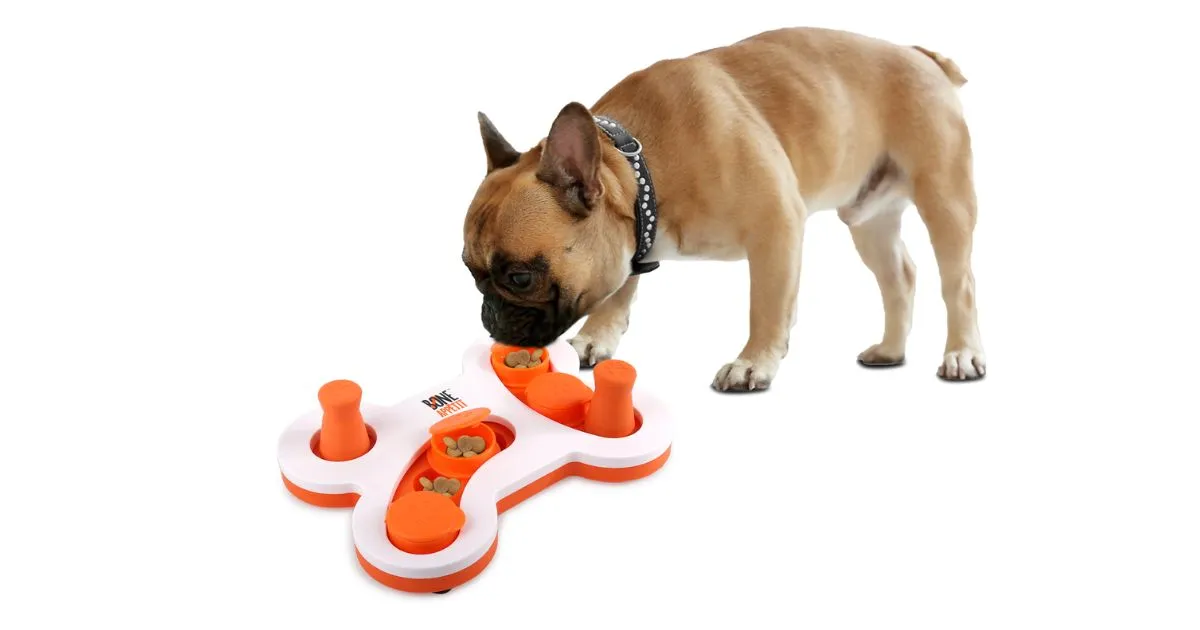 All For Paws Bone Appetit Flip
All For Paws Bone Appetit Flip
All For Paws Interactives Enjoy the Meal
With the All For Paws Interactives Enjoy the Meal toy, your puppy’s problem-solving skills are put to the test through its flip-open and slide treat compartments. This engaging toy also features removable treat dispensers, allowing you to hide treats in other areas for your puppy to seek and enjoy, further enhancing their mental engagement.
Key Features:
- Removable treat dispensers for varied treat-hiding challenges.
- Flip and slide compartments designed to satisfy natural foraging instincts.
- Effectively reduces boredom and helps prevent destructive behaviour by providing an appropriate outlet for their energy.
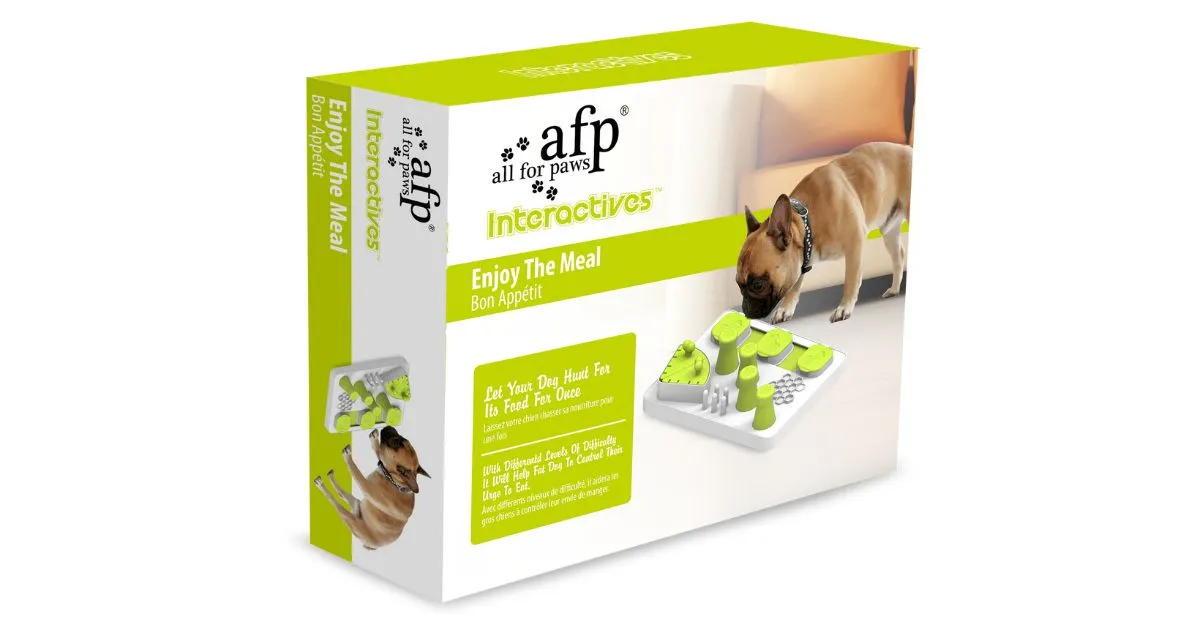 All For Paws Interactives Enjoy The Meal
All For Paws Interactives Enjoy The Meal
Engaging Treat-Dispensing Toys for Endless Fun
For puppies who absolutely adore treats, treat-dispensing toys are a dream come true. These toys combine playtime with delicious rewards, offering another layer of mental engagement. Puppies need to figure out the best way to release the hidden goodies, providing both cognitive exercise and tasty motivation. These are essential puppy toys to keep them occupied and well-rewarded.
KONG Classic – The Ultimate Treat Dispenser
The KONG Classic is the ultimate in pet entertainment. It can be filled with food and treats for your puppy to spend time retrieving, and its unpredictable bounce provides both physical exercise and cognitive engagement simultaneously. It’s a classic for a reason, offering versatility and durability.
Key Features:
- A hollow rubber toy, perfect for filling with puppy-safe food or treats.
- Ultra-durable rubber promotes healthy teeth and gums.
- An unpredictable bounce keeps your puppy’s mind engaged and strengthens cognitive skills.
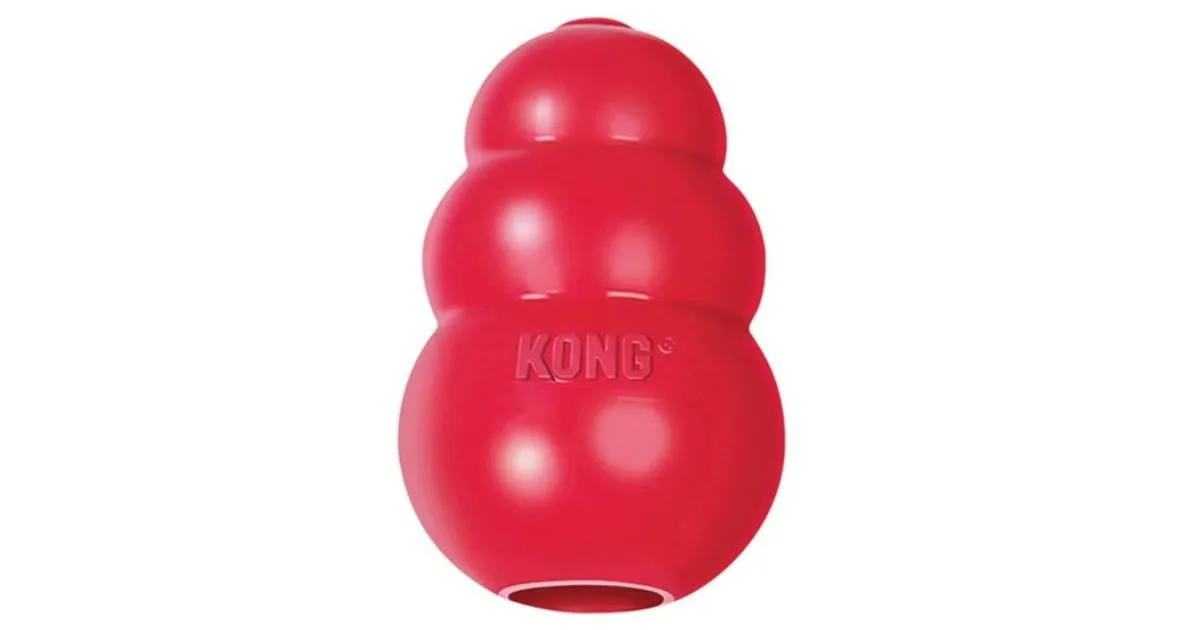 KONG Classic
KONG Classic
The Importance of Chew Toys for Puppies
Chewing is a natural and essential behavior for puppies, especially during their teething phase. Providing appropriate chew toys is vital to redirect this instinct away from your furniture and towards something safe and enjoyable. For puppies, finding the right puppy toys to keep them occupied often involves a good chew toy.
Durable Chew Toys for Teething Puppies
When selecting chew toys, consider durability and safety. Puppies, with their developing jaws, need toys that can withstand their chewing power without splintering or posing a choking hazard. For puppies with strong chewing tendencies, you might look into the best dog toys for aggressive chewers that are also appropriate for their size and age. These toys not only satisfy their need to chew but also help clean their teeth and gums.
Scent-Based Games: Tapping into Natural Instincts
Dogs possess an incredible sense of smell, significantly more powerful than ours. Scent-based games and treat-hiding toys utilize this natural ability, offering endless entertainment as puppies sniff out concealed treasures. These activities are perfect for channeling a puppy’s natural exploratory drives.
Snuffle Mats and Treat Hiding Mats
The All For Paws Dig It Sunflower Sniffer Mat and All For Paws Dig It Squirrel Treat Mat provide playful ways to hide puppy food and fulfill their natural foraging instinct, keeping them busy and mentally stimulated while you’re away. These mats encourage slow eating and provide a rewarding challenge.
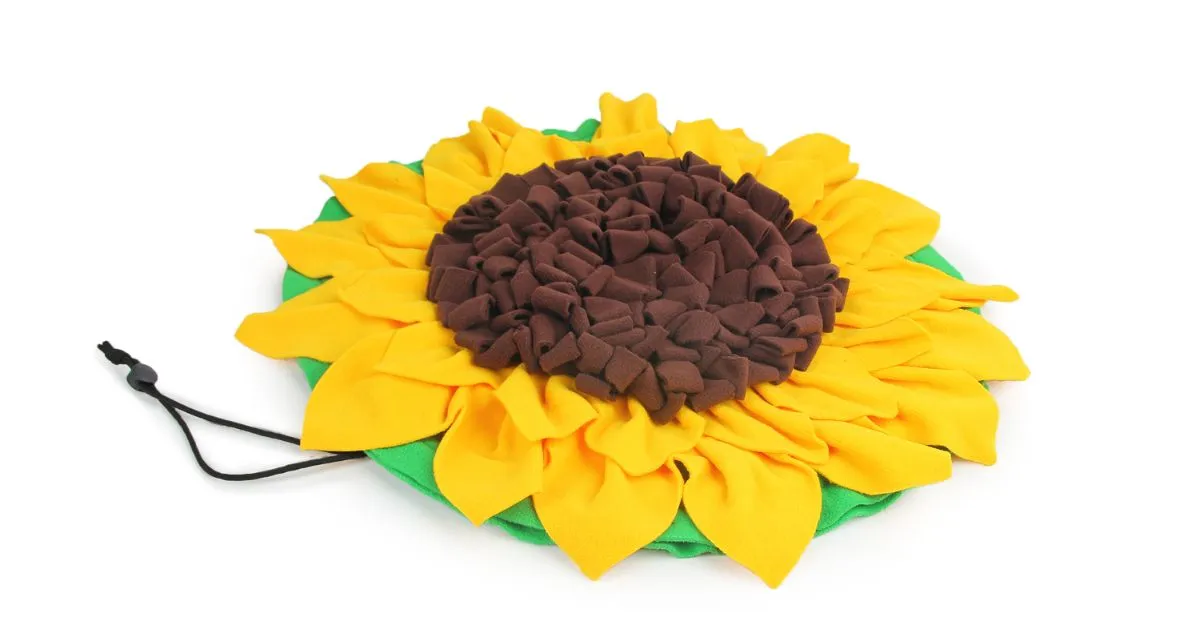 All For Paws Dig It Sunflower Sniffer Mat
All For Paws Dig It Sunflower Sniffer Mat
Finding the Perfect Toy Mix for Your Puppy
Every puppy is unique, so it’s important to experiment to discover what your individual puppy enjoys most. Some puppies might prefer squeaky plush toys while others might enjoy tough chewable ropes. Balancing self-play items like puzzle toys with those designed for interaction ensures there will always be something suitable available to keep them engaged.
Expert Tip: Select treat-hiding toys that engage a puppy’s natural foraging instincts. This is a highly effective way to keep your puppy busy playing while you’re at work, promoting crucial mental stimulation and providing excellent entertainment.
Frequently Asked Questions about Puppy Toys
How can I keep my puppy entertained while I’m at work?
Invest in a variety of interactive toys, puzzles, and treat-dispensing toys to keep their young minds occupied. Regularly rotating these toys will help maintain your puppy’s interest and prevent boredom.
What toys will keep a puppy busy for hours?
Durable chew toys specifically designed for puppies, puzzle feeders, and mentally stimulating games are excellent options that can occupy puppies for extended periods. Ensure the toys are age-appropriate and safe.
How do I keep my puppy entertained during the day?
Beyond engaging toys, consider a good play session before you leave, a midday visit from a dog walker or pet sitter, or even enrolling them in a puppy daycare program if feasible.
What do people do with puppies while at work all day?
Most pet parents ensure their puppies have access to food, fresh water, a comfortable resting spot, and safe, engaging toys. Some owners also invest in interactive pet cameras to check on their puppies remotely and interact with them virtually.
Conclusion: Happy Puppy, Happy Home
Finding the best puppy toys to keep them occupied is essential for their happiness, well-being, and a harmonious home environment. By providing them with stimulating and interactive toys, you can transform their alone time into moments of joyful engagement and crucial mental exercise. Whether it’s challenging puzzle games, safe and durable chew toys, or interactive treat-dispensing gadgets, these toys will help keep your puppy entertained and content throughout the day, preventing mischief and promoting healthy development.
By investing in their playtime, you’ll be rewarded with an excited, tail-wagging welcome every time you return home. We understand how important it is to keep your pet happy, healthy, and entertained even when you’re not around.
